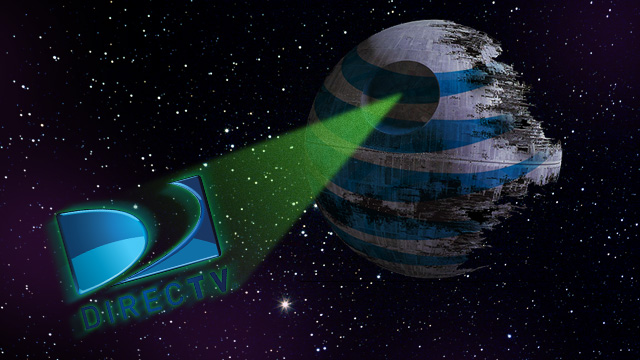
AT&T expects to lose about 1.1 million TV customers in the third quarter as it faces pressure from an investment group that says AT&T's increased focus on the TV business was a giant mistake.
In an update to shareholders yesterday, AT&T CFO John Stephens "said the company expects an incremental 300,000 to 350,000 premium video losses above the previous quarter's premium video results," according to AT&T. Since that's an incremental increase over the previous quarter's loss, that will amount to a three-month loss of more than 1 million TV customers.
In Q2 2019, AT&T reported a net loss of 778,000 subscribers in the "Premium TV" category, which includes its DirecTV satellite and U-verse wireline TV services. With AT&T expecting to lose that amount of subscribers plus another 300,000 to 350,000, the update to shareholders suggests the Q3 loss in the category will be between 1,078,000 and 1,128,000 subscribers. (An AT&T spokesperson confirmed to Ars that a projected loss of 1,078,000 and 1,128,000 subscribers in Q3 is accurate.)
AT&T's update to shareholders attributed the expected loss to "aggressively managing costs with retransmission negotiations, some of which resulted in content provider blackouts; and from limiting promotional pricing." AT&T said it has been "holding a hard line in negotiations" with programmers to control costs, but the resulting blackouts of channels is driving TV subscribers away.
The projected loss apparently does not include AT&T TV Now (formerly known as DirecTV Now), an online service that AT&T hasn't included in the Premium TV category in its earnings reports. AT&T also lost 168,000 subscribers of DirecTV Now/AT&T TV Now in the second quarter, but it didn't say how that service will fare in the third quarter.
Including both premium TV and the streaming service, AT&T's total number of video subscribers dropped from 25.4 million in Q2 2018 to 22.9 million in Q2 2019. The total would drop to about 21.8 million after the third quarter if AT&T TV Now remains steady.
AT&T bet on declining TV business
The pay-TV business has been struggling in the face of competition from online streaming. Despite that, AT&T made a huge bet on video in recent years, buying DirecTV in 2015 and Time Warner Inc. in 2018.
To get back on track, AT&T is banking on its new AT&T TV streaming service, which is different from AT&T TV Now despite having a nearly identical name. Unlike AT&T TV Now, AT&T TV has two-year contracts, prices that rise automatically after a year, fees for activation and early termination of service, a Regional Sports Fee, and "certain other additional fees and charges."
It's not clear to us why customers who ditched DirecTV or U-verse would be tempted by a streaming service that recreates the annoyances and pricing structure of traditional cable and satellite TV services. But AT&T said that in 2020, it "expects premium TV subscriber trends to improve due to far fewer customers on promotional pricing and the nationwide launch of AT&T TV, which delivers a premium streaming experience."
AT&T said its 2020 performance should also be helped by higher per-customer revenue because it's limiting the discounts available to subscribers.
That's not saying much, though. At its current pace, AT&T could improve the subscriber trend significantly and still lose hundreds of thousands of TV customers each quarter.
Investor blasts AT&T TV strategy
AT&T's TV strategy was criticized this week in an open letter by activist investor Elliott Management Corp., which has a $3.2 billion stake in AT&T.
"Notwithstanding AT&T leadership's assertions that 'Pay TV is a very good, durable business' when the [DirecTV] transaction was announced, the pay-TV ecosystem has been under immense pressure since the deal closed," the investor firm said. "In fact, trends are continuing to erode, with AT&T's premium TV subscribers in rapid decline as the industry, particularly satellite, struggles mightily. Unfortunately, it has become clear that AT&T acquired DirecTV at the absolute peak of the linear TV market."
Elliott Management is also skeptical of the Time Warner buy. "[D]espite nearly 600 days passing between signing and closing (and more than a year passing since), AT&T has yet to articulate a clear strategic rationale for why AT&T needs to own Time Warner," the open letter said.
Including debt, buying DirecTV cost $67 billion and Time Warner cost $109 billion.
The open letter said that AT&T is moving too far away from its core telecom business, and it criticized the company for not performing as well in the wireless industry as Verizon. Elliott Management called for "significant operational improvements" and for the board to evaluate whether AT&T has "the right mix of leadership at the company." AT&T should consider divesting DirecTV and other non-core businesses, the open letter also said.
AT&T issued a short response, saying its management team and board of directors "will review Elliott Management's perspectives in the context of the company's business strategy." However, AT&T defended its strategy of assembling a "unique portfolio of valuable businesses... across communications networks and media and entertainment."
"AT&T's Board and management team firmly believe that the focused and successful execution of our strategy is the best path forward to create value for shareholders," the company said.
Separately, AT&T is facing a class-action lawsuit alleging that it lied to investors in order to hide the failure of its DirecTV Now streaming TV service.
reader comments
187